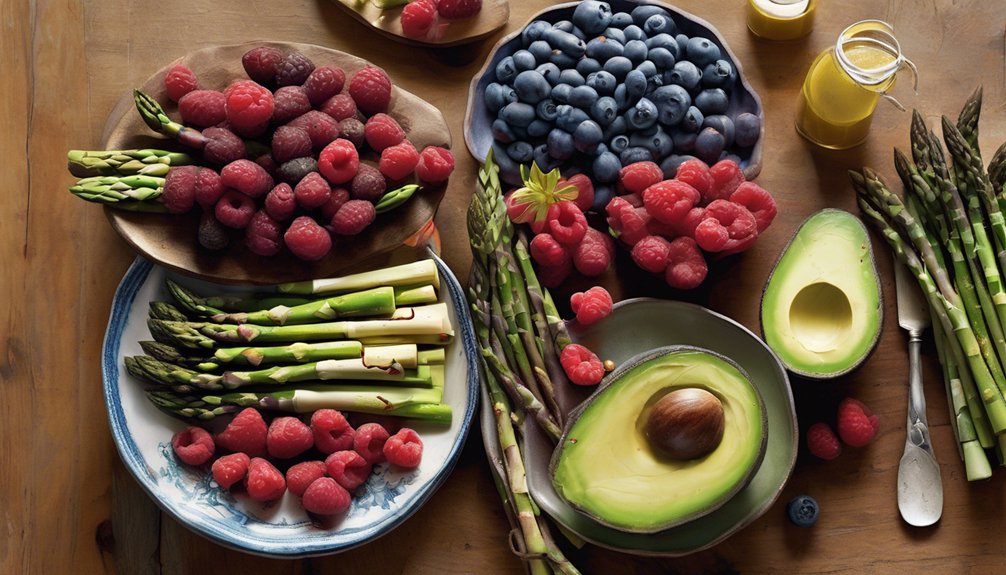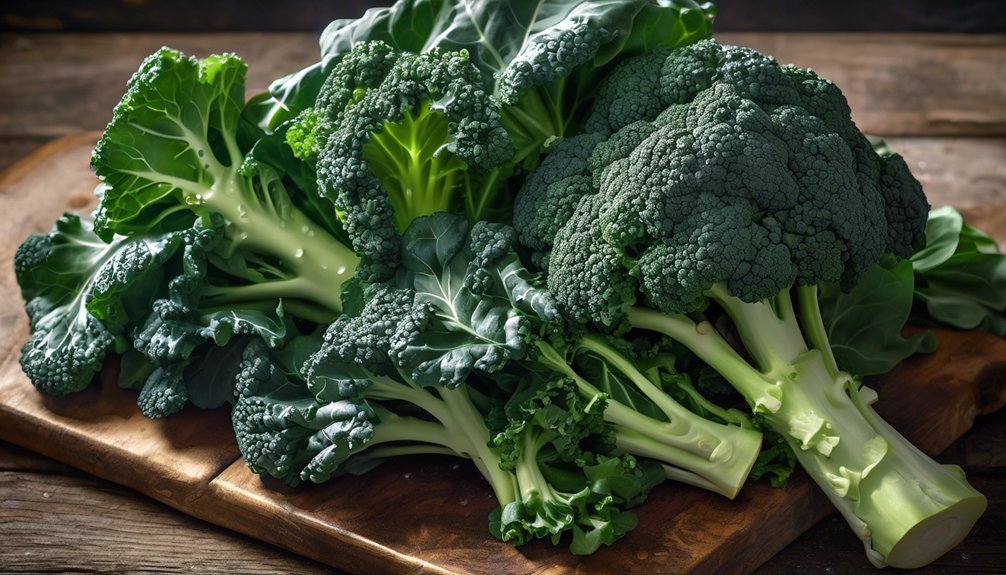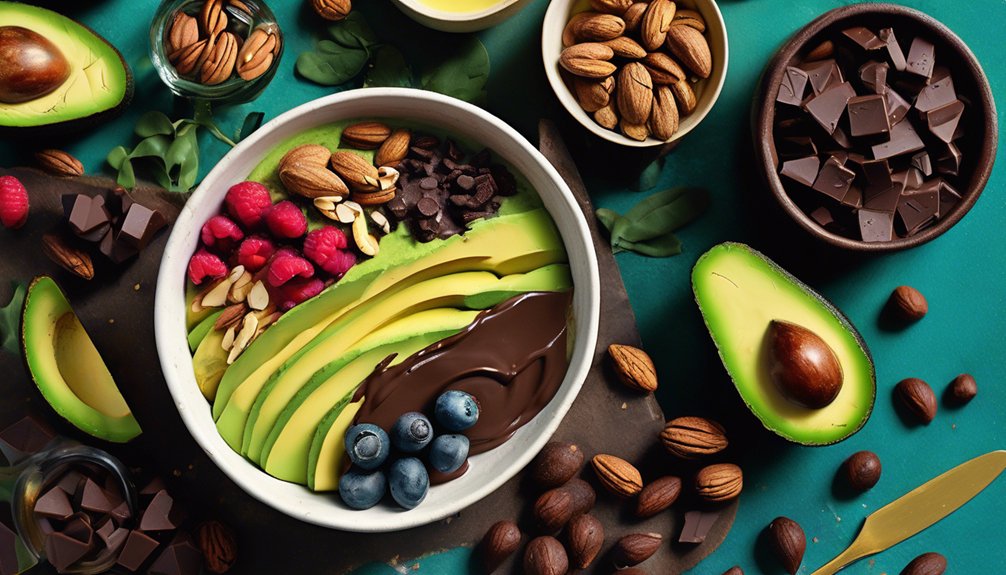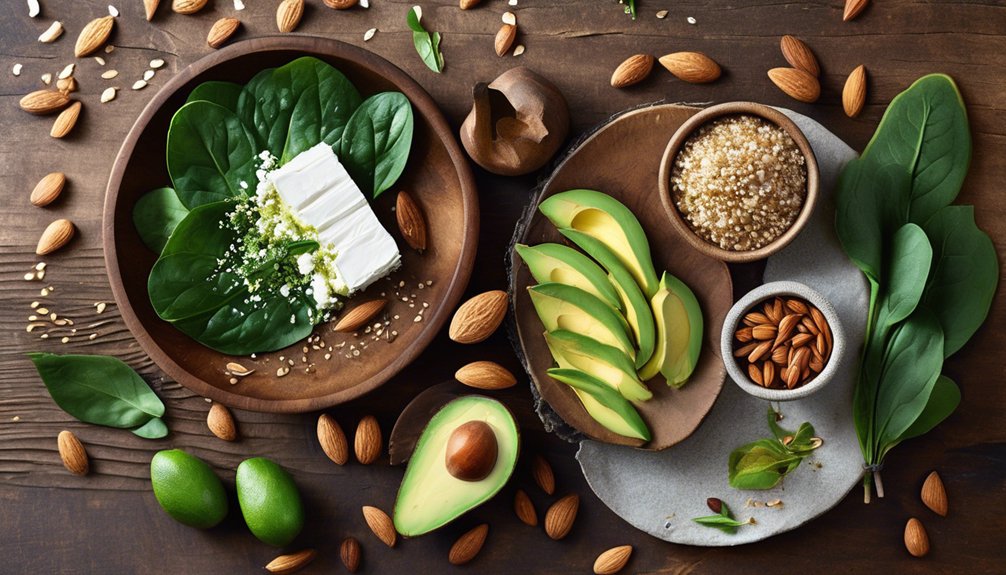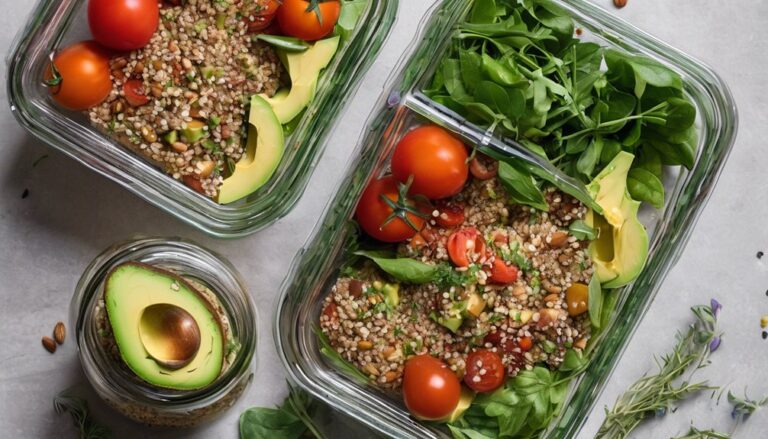Fertility-Boosting Foods to Know
Did you know that nearly 1 in 8 couples struggle with fertility issues? Understanding the impact of nutrition on reproductive health can be a game changer. Incorporating specific foods into your diet might enhance your chances of conception. From leafy greens to healthy fats, what you eat plays a significant role in hormonal balance and overall wellness. Let's explore the key fertility-boosting foods that could make a difference for you.
Key Takeaways
- Incorporate leafy greens and cruciferous vegetables to enhance cellular health and hormonal balance, boosting fertility.
- Include antioxidant-rich fruits like berries and citrus to improve immune function and reduce inflammation for reproductive health.
- Add healthy fats from avocados and omega-3 sources to support hormone production and menstrual cycle regulation.
- Choose whole grains like quinoa and brown rice to promote healthy weight and balance blood sugar levels, aiding ovulation.
- Diversify protein sources with plant-based proteins and lean meats to nourish the body and enhance reproductive wellness.
Leafy Greens and Cruciferous Vegetables
When you incorporate leafy greens and cruciferous vegetables into your diet, you're not just adding variety; you're also boosting your fertility.
Leafy greens like spinach and kale are rich in folate, which plays a crucial role in cellular health and reproduction.
Meanwhile, cruciferous vegetables such as broccoli and Brussels sprouts contain essential nutrients and antioxidants that support hormonal balance and detoxification.
These vibrant veggies help reduce inflammation and promote healthy blood flow, creating a nurturing environment for conception.
By enjoying a colorful plate filled with these nutrient-dense foods, you're nourishing both your body and your reproductive system.
Fruits Rich in Antioxidants
Incorporating fruits rich in antioxidants into your diet can significantly enhance your fertility by combatting oxidative stress and promoting overall reproductive health.
These vibrant fruits offer numerous benefits, making them essential for your fertility journey. Consider adding the following to your meals:
- Berries (blueberries, strawberries, raspberries) for their powerful antioxidants and vitamins.
- Citrus fruits (oranges, lemons, grapefruits) to boost vitamin C levels and improve immune function.
- Cherries for their anti-inflammatory properties.
- Pomegranates for supporting blood flow and hormone balance.
- Grapes for their ability to fight free radicals.
Embracing these fruits not only nourishes your body but also creates a loving environment for conception.
The berries benefits and citrus choices can truly make a difference in your fertility journey.
Healthy Fats for Hormonal Balance
While antioxidant-rich fruits play a vital role in enhancing fertility, healthy fats are equally important for maintaining hormonal balance. Incorporating healthy fats into your diet can support hormone production, making it easier for your body to regulate menstrual cycles and ovulate effectively.
Avocado benefits are particularly noteworthy; this creamy fruit is rich in monounsaturated fats, which help reduce inflammation and improve blood flow to reproductive organs. Additionally, omega sources like fatty fish, walnuts, and flaxseeds provide essential fatty acids that further support hormonal health.
Whole Grains and Fiber
Eating whole grains and fiber can significantly impact your fertility by promoting a healthy weight and balancing blood sugar levels. Incorporating these into your diet offers numerous whole grain benefits that can enhance your reproductive health.
Here are some key fiber sources to consider:
- Quinoa: A complete protein and fiber-rich grain.
- Brown rice: Lowers insulin levels and supports ovulation.
- Oats: Help regulate hormones and improve cholesterol.
- Barley: Aids digestion and keeps you feeling full.
- Whole wheat bread: Provides essential nutrients and fiber.
Protein Sources for Reproductive Health
Maintaining a balanced diet rich in protein can significantly enhance reproductive health.
You'll want to include a mix of plant-based proteins, like lentils, chickpeas, and quinoa, which provide essential amino acids and vitamins. These nutrient-dense foods support hormonal balance and overall wellness.
Lean meats, such as chicken and turkey, are also excellent choices, offering high-quality protein that can help maintain healthy body composition and fertility.
Incorporating fish, especially those rich in omega-3 fatty acids, can further support reproductive health by reducing inflammation.
By choosing a variety of protein sources, you not only nourish your body but also create a loving environment for intimacy and connection.
Frequently Asked Questions
Can Supplements Replace Fertility-Boosting Foods?
Supplements can't fully replace fertility-boosting foods. Their effectiveness often relies on food synergy, where nutrients work better together. Embracing a balanced diet enriches your body, providing holistic support that supplements alone can't achieve.
How Long Does It Take for Diet Changes to Affect Fertility?
In this modern age, diet duration can significantly influence your fertility. Typically, you'll notice changes within three to six months, aligning with your nutrition timeline. Embracing a holistic approach nurtures your body for optimal reproductive health.
Are There Any Foods to Avoid for Better Fertility?
To enhance fertility, you should avoid processed sugars and trans fats. These unhealthy choices can disrupt hormonal balance and overall health, so focus on nourishing your body with whole foods instead. Your journey matters!
Is Hydration Important for Fertility Health?
Yes, hydration's crucial for fertility health. Proper water intake enhances circulation and nutrient absorption, supporting reproductive functions. Staying hydrated not only boosts overall wellness but also promotes a nurturing environment for conception, benefiting both partners.
How Does Stress Impact Fertility and Food Choices?
You might not realize it, but stress can disrupt your hormonal balance, affecting your food choices. Prioritizing stress management through mindfulness and nutrition can help you maintain a healthier lifestyle, supporting your overall well-being and reproductive health.
Conclusion
In your quest for fertility, you might think indulging in ice cream or chips would be the ticket, but it's actually those leafy greens and antioxidant-rich fruits that'll do the trick. Embracing healthy fats and fiber from whole grains can turn your body into a fertility powerhouse, while plant-based proteins nourish your reproductive health. So, while junk food might seem tempting, it's the vibrant colors of nature that truly support your journey to parenthood. Choose wisely!
